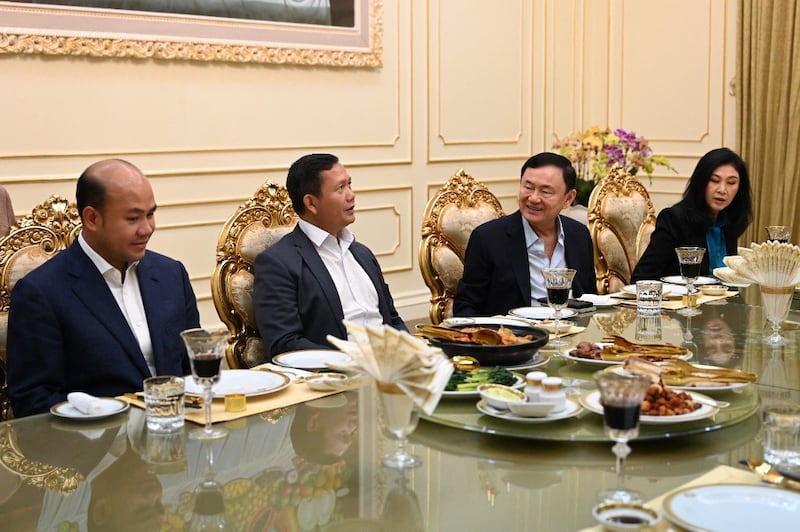Updated October 6, 2023, 2:43 p.m. ET
Cambodia’s Prime Minister Hun Manet on Thursday urged students and young adults to volunteer to serve their communities, but critics say it’s hypocritical for him to ask at a time when his government regularly cracks down on social and environmental activism.
In a speech before government officials, teachers and students, Hun Manet encouraged the students to take a day off from school once or twice a week to volunteer.
“[We should] train people and children to know how to help social work,” he said. “We can assign people to help improve sanitation, to help the elderly and to help plant trees.”
Hun Manet, who recently took over the prime ministership after his father Hun Sen ruled the country for nearly four decades, said that it was important to foster a volunteer mindset.
“[This is] a way we can encourage [students,]” he said. “Their grades [should] not just come from in-class examinations, but also come from their discipline and behavior.”

The request seemed disingenuous to Phuong Keo Raksmey, a member of the Mother Nature Cambodia environmentalist group.
While she appreciated the encouragement to volunteer, she told RFA Khmer that students in 7th grade and up are regularly recruited into the Union of Youth Federations of Cambodia – an organization led by the prime minister’s brother Hun Many – which, in her opinion, does not engage in activities that better the community, but serves the interests of the ruling Cambodian People’s Party.
“First, the definition of ‘social work’ should be defined,” she said. “It should not be limited to work that [directly] supports the government or the policies of any political party.”
She urged the government to allow people freedom to choose how they volunteer.
Keut Saray, the president of the Khmer Intellectual Students Association, said that the government should make amends for past crackdowns on volunteers, including himself.
“When young students became active in social work [in the past], they were restricted and charged under the penal code and then imprisoned,” he said. “So we’re seeing that they ‘talk the talk,’ but it doesn’t mean anything if it isn’t translated into action.”
The crackdown on social activists occurred under the rule of Hun Sen, not Hun Manet, but since taking over, the son’s administration has yet to take concrete steps to guarantee the rights of young people involved in activism.
For example, the Phnom Penh Municipal Court denied a request by Phuong Keoraksmey and two other members of Mother Nature Cambodia for permission to leave the country so that they could travel to Sweden to receive the prestigious Right Livelihood Award this November in recognition for their environmental activism.
The award has been described as an alternative to the more well-known Nobel Prize.
Phnom Penh protest
Around 10 members of the organization, including the three recipients, protested the travel ban by marching in chains on the streets of Phnom Penh to the Ministry of Justice.
“Please let us go to Sweden. We need to get our award,” Phuong Keoraksmey said. “The Cambodian people support us. Our actions were not illegal. Our actions protected the environment and nature.”
Thun Ratha, another recipient, told RFA that allowing the three to receive the award in person is necessary for Cambodia’s global reputation on the international stage “to show that Cambodia has resources of brave young people to defend human rights and natural resources.”
The third recipient, Long Kunthea asked the minister of justice to reconsider.
“It’s an amazing award that we received … It shows that Cambodia has brave youth who will sacrifice our lives to protect natural resources.”
RFA could not reach Ministry of Justice spokesperson Chin Malin for comment Friday.
Suon Yuthia, the director of the advocacy division of the Cambodian Center for Human Rights, told RFA that the new government under Hun Manet must allow the three to receive their award.
“They are role models to youth and are working hard for our country to protect the environment and human rights,” he said.
The three recipients are currently serving suspended prison sentences after being found guilty of incitement for their role in protests against forest and water development projects.
Translated by Sok Ry Sum. Edited by Eugene Whong.
Update adds the account of the protest and quotes from the award recipients.
